第13章 CHAPTER III(1)
The Rev. Patrick Bronte is a native of the County Down in Ireland.
His father Hugh Bronte, was left an orphan at an early age. He came from the south to the north of the island, and settled in the parish of Ahaderg, near Loughbrickland. There was some family tradition that, humble as Hugh Bronte's circumstances were, he was the descendant of an ancient family. But about this neither he nor his descendants have cared to inquire. He made an early marriage, and reared and educated ten children on the proceeds of the few acres of land which he farmed. This large family were remarkable for great physical strength, and much personal beauty.
Even in his old age, Mr. Bronte is a striking-looking man, above the common height, with a nobly-shaped head, and erect carriage.
In his youth he must have been unusually handsome.
He was born on Patrickmas day (March 17), 1777, and early gave tokens of extraordinary quickness and intelligence. He had also his full share of ambition; and of his strong sense and forethought there is a proof in the fact, that, knowing that his father could afford him no pecuniary aid, and that he must depend upon his own exertions, he opened a public school at the early age of sixteen; and this mode of living he continued to follow for five or six years. He then became a tutor in the family of the Rev. Mr. Tighe, rector of Drumgooland parish. Thence he proceeded to St. John's College, Cambridge, where he was entered in July, 1802, being at the time five-and-twenty years of age. After nearly four years' residence, he obtained his B.A. degree, and was ordained to a curacy in Essex, whence he removed into Yorkshire.
The course of life of which this is the outline, shows a powerful and remarkable character, originating and pursuing a purpose in a resolute and independent manner. Here is a youth--a boy of sixteen--separating himself from his family, and determining to maintain himself; and that, not in the hereditary manner by agricultural pursuits, but by the labour of his brain.
I suppose, from what I have heard, that Mr. Tighe became strongly interested in his children's tutor, and may have aided him, not only in the direction of his studies, but in the suggestion of an English university education, and in advice as to the mode in which he should obtain entrance there. Mr. Bronte has now no trace of his Irish origin remaining in his speech; he never could have shown his Celtic descent in the straight Greek lines and long oval of his face; but at five-and-twenty, fresh from the only life he had ever known, to present himself at the gates of St. John's proved no little determination of will, and scorn of ridicule.
While at Cambridge, he became one of a corps of volunteers, who were then being called out all over the country to resist the apprehended invasion by the French. I have heard him allude, in late years, to Lord Palmerston as one who had often been associated with him then in the mimic military duties which they had to perform.
We take him up now settled as a curate at Hartshead, in Yorkshire--far removed from his birth-place and all his Irish connections;with whom, indeed, he cared little to keep up any intercourse, and whom he never, I believe, re-visited after becoming a student at Cambridge.
Hartshead is a very small village, lying to the east of Huddersfield and Halifax; and, from its high situation--on a mound, as it were, surrounded by a circular basin--commanding a magnificent view. Mr. Bronte resided here for five years; and, while the incumbent of Hartshead, he wooed and married Maria Branwell.
She was the third daughter of Mr. Thomas Branwell, merchant, of Penzance. Her mother's maiden name was Carne: and, both on father's and mother's side, the Branwell family were sufficiently well descended to enable them to mix in the best society that Penzance then afforded. Mr. and Mrs. Branwell would be living--their family of four daughters and one son, still children--during the existence of that primitive state of society which is well described by Dr. Davy in the life of his brother.
"In the same town, when the population was about 2,000 persons, there was only one carpet, the floors of rooms were sprinkled with sea-sand, and there was not a single silver fork.
"At that time, when our colonial possessions were very limited, our army and navy on a small scale, and there was comparatively little demand for intellect, the younger sons of gentlemen were often of necessity brought up to some trade or mechanical art, to which no discredit, or loss of caste, as it were, was attached.
The eldest son, if not allowed to remain an idle country squire, was sent to Oxford or Cambridge, preparatory to his engaging in one of the three liberal professions of divinity, law, or physic;the second son was perhaps apprenticed to a surgeon or apothecary, or a solicitor; the third to a pewterer or watchmaker; the fourth to a packer or mercer, and so on, were there more to be provided for.